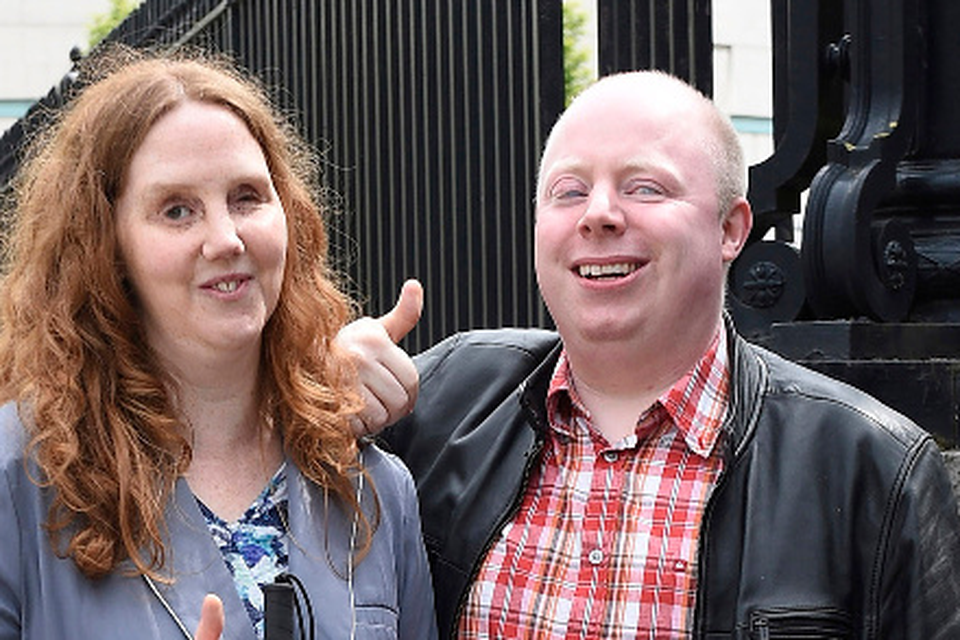Blind woman's landmark legal victory against local council over height of new kerbs
Joanna Toner and husband Barry outside the High Court yesterday
A blind woman has won a landmark High Court challenge over kerb heights in a new city centre regeneration scheme.
Joanna Toner secured a ruling that the public authority overseeing the project in Lisburn, Co Antrim, breached its legal duty to ensure equality for disabled people.
Quashing the decision to lower kerbs to 30mm as part of the multi-million pound revitalisation initiative, a judge held that a rigorous inquiry should have been carried out.
Mr Justice Maguire said: "There is clear evidence that the blind or partially sighted as a group of disabled people were likely to be affected by the way the scheme was designed and built."
Although his verdict does not mean pavements must be ripped up, council representatives are now expected to ensure the process is subjected to a full equality impact assessment.
Mrs Toner (39) said she was delighted with the outcome in a case she took amid fears of being excluded from parts of her own city centre due to the risk of stepping out and being hit by traffic.
She issued judicial review proceedings against the new Lisburn and Castlereagh City Council over the decisions ratified in 2014.
The public realm scheme is aimed at transforming streets in the centre of Lisburn. The scheme created new paving and kerbs in and around Bow Street and Market Square.
Backed by Guide Dogs NI and the Royal National Institute of Blind People in Northern Ireland, Mrs Toner claimed the process surrounding the scheme was unlawful.
The court heard how she is married to a blind man and values her independence.
She stated that previously she could walk around Lisburn city centre without difficulty, accompanied by her guide dog or using a white cane.
But implementation of the public realm scheme, and specifically the kerb heights, dealt a blow to her confidence.
Her lawyers argued that academic research recommending that the edges should be at least 60mm in height was not properly considered.
In a wide-ranging case, they also alleged a flawed consultation process was carried out, bias, unfairness, and breaches of Mrs Toner's human rights.
Mr Justice Maguire dismissed all grounds of challenge apart from claims that an equality impact assessment was not carried out, as required under section 75 of the Northern Ireland Act 1998.
He determined that the council did not perform its public sector duty to measure the impact of the scheme on disabled people, particularly the blind.
Outside court Mrs Toner said: "The council have to take into consideration the needs of disabled people in every decision they take."
Join the Belfast Telegraph WhatsApp channel
Stay up to date with some of Northern Ireland's biggest stories

